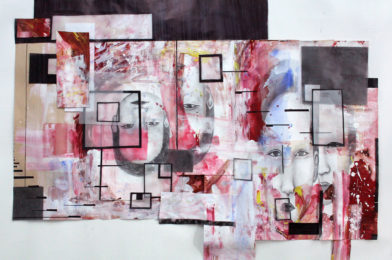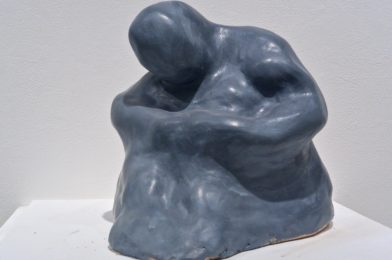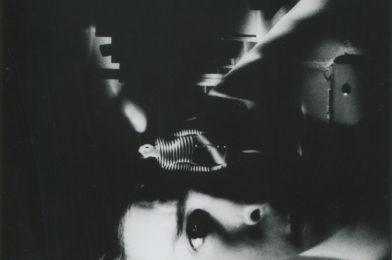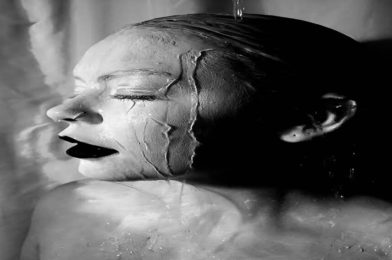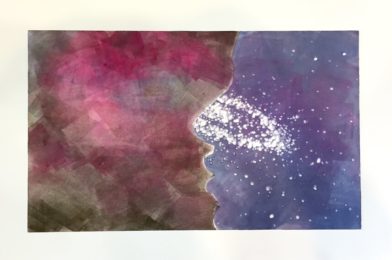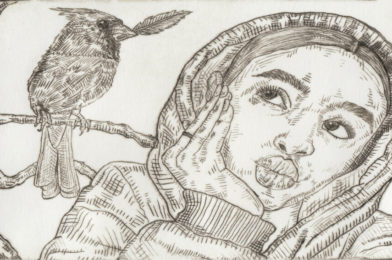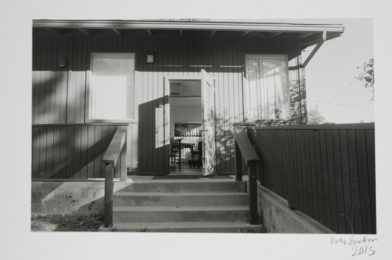The story opens like this: a small suburban town, incredibly picturesque scenery, high expectations and even higher taxes. A teenage girl mingles with her friends in the hallway in the few sacred minutes before class begins. She looks like the average Chappaqua student. She sounds like the average Chappaqua student. She is one, isn’t she?
Mm, not so much. Before Chappaqua there was Eastchester with its white picket fences and lovely neighbors, where she and her parents piled into a rented single-bedroom, single-bathroom multi-family house for four years. Before Eastchester was the Bronx, a tall apartment with a view of the city skyline from the top floor and piles of rotting garbage from the bottom, where they stayed on the fourth floor for a few years until a drunk man was shot to death in the bar behind their building, after which her parents deemed it high time to move out. Before the Bronx was South Side Chicago, notoriously dangerous, not particularly pleasant either, especially not the grimy studio apartment (demolished a few years after they moved) that she can only remember from photo albums—but her first home nonetheless.
Before that before and even before that, if you really dig deep enough, you’d trace her life tree down through its suburban trunk, into its roots buried in sketchy South Side Chicago soil, through the Americas and across the horizon of the Atlantic.
The real story opens like this: a big city, street lamps blurring together under the ink of night. A 25-year-old newlywed waiting for the 8:15 PM bus calls this city her home, the only home she’s ever known.
She’s a planner and has been one for her whole life. She knows what she’s doing, what she’s capable of, what she wants in life. This city is her childhood and her youth. This life is comfort and familiarity and convention guaranteed to lead to stability.
Above the streetlamp, a sliver of moon hovers, just enough for its beams to skim the dots of drifting snow. The wind warns of an impending storm, tugging at the end of her ponytail and swirling the tip into a brush dipped in the gold of the streetlight glow, ready to paint her future. She looks around herself at the streets she could navigate with her eyes closed, the people she’s loved her entire life, the home she’s slowly built for herself.
Yet she knows there’s more. Her husband just left to study abroad in Illinois. She wants to support him there, and maybe she should. But how can she not think about all of the impossibilities? If she leaves her home, will she ever come back? What about her mother and father and brother? Will she make it in a country whose language she can barely speak, whose culture is entirely foreign, whose location is halfway across the planet? How does she survive financially, socially? Emotionally?
The moon brightens and brightens, fans out across the sky. Hours pass and the snow comes softer, everything rhyming with the word “go”. She thinks again of the impossibilities, and then of the possibilities. The promise of spring, glowing green and gold.
And then she rushes toward it with every ounce of energy she has.
She first works as a minimum-wage fast-food server at a Chinese place in downtown Chicago. She comes home every night nauseous from the sickening smell of oil soaked into her clothes and her hair, hands burned and blistered from the frying pan. For now, no other stores will take her with her poor English. So she studies hard.
Half a year later, a friend introduces her to the owner of a Japanese restaurant a few blocks east and she lands a job immediately. The restaurant is nice, somewhere she might have chosen to dine with a few friends on a Friday night if she were back home. She carries a secret snack stash of edamame beans in the left pocket of her apron and a pocket-size dictionary in the other—here, she relies much more on English. She gets tips now, and a few months later, she and her husband save up enough money to buy a bed frame to go with their mattress.
Because she adores children, her third job is babysitting. It pays well and she grows close to several of the families she works with. She has her very own baby to babysit a year later: her daughter, born on a chilly November morning as twilight surrenders to dawn. Shortly after, her husband receives a job offer in the Bronx, so they say goodbye to their friends (surprised by how sad they are to go), then on a foggy weekend begin their drive to New York City.
The sunsets from the balcony of their new apartment blanket the entire city until only tiny glittering lights are left dotting the skyline across the pier, countless specks of light, countless dreams and wishes. Their room is close to the ground floor so on windy days she gets a whiff of the garbage piles on the streets, but it’s nothing compared to the fast-food place she used to work at. Days bleed into weeks. She upgrades her pocket-size dictionary to a handheld electronic one that she buys from a Dollar Tree two blocks down.
She takes her daughter to the library near their apartment and explains to the librarians in what broken English she can muster that she’s going back to school soon, that she’ll be busy but can’t afford a nanny, asks if it’s okay to maybe drop her daughter off on the weekends. And so it’s between the beanbag chairs and lime green leather couches with the help of the librarians that her daughter learns how to sound English letters out, how to put them into mysterious bundles called words, how to read—and god, after she learns how to read, there’s really no stopping it. She sees the way her daughter falls in love with the adrenaline rush of a plot twist, the desperate itch of a cliffhanger, the way the page opens up doors to worlds and people that don’t even exist in this dimension of the universe.
Outside of those library walls, weeks blur into months, months into years. She’s back in school for her master’s degree: classes in the morning, interning in the afternoon, work in the evening, homework deep into the night as the sky blackens and blackens then pales again, hinting at dawn. A few hours of sleep. Repeat.
Seven hundred sunsets and sunrises later, she receives her diploma and a New York State teaching certificate and an indescribable feeling of warmth. Her daughter is growing up. When she lands a second interview for the first time, she buys herself a laptop to replace the battered electronic dictionary that she barely even needs anymore, switches out her flip-phone for the newest Nokia. They move out to the suburbs into a good school district that’s two hours away, but she takes up the offer at the Brooklyn elementary school anyway when they tell her she’s hired. It’s the first call she gets on her smartphone and she saves the number into her contacts with shaking hands.
Sure, she’d like to sleep past 5 AM and not commute for four hours a day, but she loves teaching more, and she loves her daughter the most. The sun blazes and blazes, pans out across the sky. The glow of spring is here.
My mother’s story is one in 37 million. Most of those voices remain unheard, memories buried, some families even separated at the border of two countries. In so many ways, my mom was lucky for being admitted legally, for being with her loved ones from the very beginning, for being able, after all these years, to pass on her story to her daughter, who will pass it on to the world. Because stories like her mother’s deserve to be told.
To make the choice she did meant that she viewed the world in a way I can’t even begin to wrap my mind around. She saw her life through a lens larger than herself, far larger, and I’m eternally grateful for that lens and for her unrelenting dedication, for not only her sacrifices, but also the mindset she instills in me by simply existing.
Her decisions have shaped me more than anything else has. I moved around a lot as a kid. It’s ingrained in who I am. From a young age, I learned to say hello and goodbye to people, because chances were I wouldn’t get another chance if I passed this one. I learned that home is where the heart is, that my family would always be my sun, unfailingly there for me every morning to keep me alive and warm. I learned that my friends are just asteroids orbiting in my life, just like I’m an asteroid in theirs. One day they’ll spin off into the abyss and new ones will come, and that’s okay. Everything I have in my tiny universe is temporary, but that’s kind of the beauty of it, isn’t it?
I’m writing this on my porch steps right now. It’s getting dark and I should probably head back before the mosquitoes get to me. But the moon is almost out in the same Chicago sky I was born under a decade and a half ago, and its faint outline greets me, a lullaby of dulcet silver against rich velvet on a hazy summer night. And if I just give myself a minute, if I’m still enough, I might hear the faint jingle of the New York City ice cream truck accompanied by an orchestra of sirens and honks. A breeze might bring a whiff of that citrus-flavored candy my mom used to buy for me on her way home from work, and I might just feel the tickle of grass in my small picket-fenced backyard in suburban Eastchester. Even with my eyes closed, I can imagine so vividly the roses that climb up my neighbor’s trellis here in Chappaqua, where the stars are brighter than city lights; I’ll picture the sunflowers and little dandelion seeds choreographed by the wind, and I’ll know, truly, that I owe everything to her.
On her twentieth wedding anniversary last week, she sat me down as the guests left, pulling out of our driveway one by one as the sun dipped behind the clouds. Tell my story, she said. Tell it to the world, dear. Write something for me.
I will, I promised her. But you’ve got to teach me your secrets first. How did you do it?
And she just laughed, took my hands in her calloused ones. I could see every wrinkle around the corners of her eyes. Sometimes, she said to me, it’s almost as though she can see herself standing at the airport alone, waiting at life’s crossroads, clutching onto a map of fate without any labels and racing down a one-way street that could very well be a dead-end—but racing anyway, because she knew that it would be worth it.
If not for herself, then for her husband. If not for herself, then for her parents and their parents, watching from above. If not for herself, then for her daughter’s life tree and its Chicago roots, for all of its branches that have yet to sprout, for the hope that its leaves, under the warmth of the spring sun, will bud green and gold.
16-year-old Zoya Yan is a junior attending Horace Greeley High School in Chappaqua, New York. As a first-generation American, she loves to explore her heritage through her writing. In her spare time, Zoya enjoys reading and napping with a preference for the latter.
Art by Noah Jones
Tagged : Creative Nonfiction / nonfiction / personal / slider
